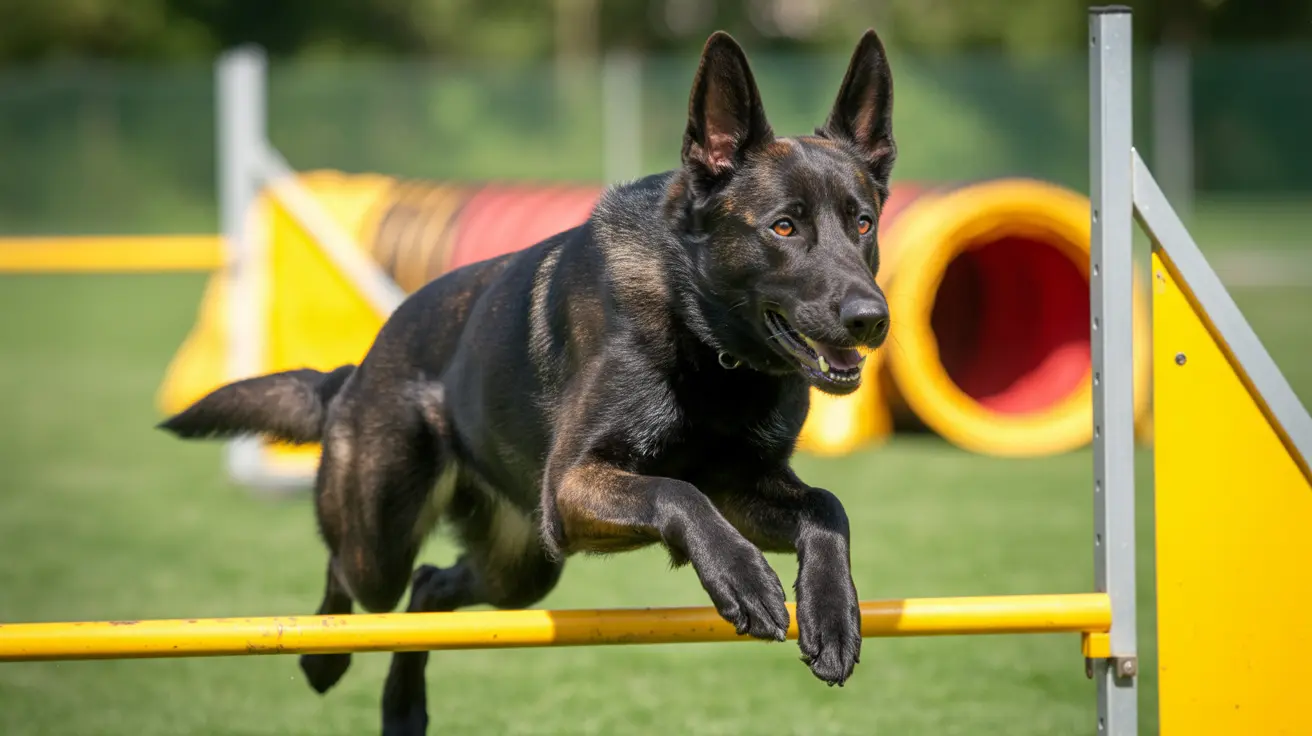Introduction
The German Shepherd stands as one of the most distinguished and versatile dog breeds in the world, renowned for its exceptional intelligence, unwavering loyalty, and impressive physical capabilities. As a consistently top-ranked breed in the United States and globally, German Shepherds have earned their reputation through decades of service in various roles, from military and police work to loving family companions.
These remarkable dogs combine strength and agility with an innate sense of duty and protectiveness, making them invaluable assets in specialized fields such as bomb detection, search and rescue, and patrol work. However, their versatility extends far beyond their working roles, as they excel equally as devoted family pets, offering a perfect balance of guardianship and affection.
Understanding the unique characteristics and requirements of the German Shepherd breed is essential for current and prospective owners alike. This comprehensive guide explores everything from their physical traits and exercise needs to health considerations and training approaches.
Physical Characteristics and Size
German Shepherds possess a distinctive appearance characterized by their strong, muscular build and noble bearing. Males typically stand 24 to 26 inches at the shoulder and weigh between 65 and 90 pounds, while females are slightly smaller, measuring 22 to 24 inches and weighing 50 to 70 pounds.
Their most recognizable feature is their double coat, usually displaying the classic tan coloring with a black saddle pattern. This thick coat not only adds to their majesty but also protects them in various climates; however, it also leads to significant shedding that owners need to manage throughout the year.
Exercise Requirements and Activity Needs
German Shepherd exercise needs are substantial, requiring at least one to two hours of daily physical activity. These intelligent dogs thrive on structured exercise that challenges both their body and mind, helping to prevent boredom and the development of destructive behaviors.
- Advanced obedience training: Engaging your German Shepherd in advanced training reinforces discipline and mental engagement.
- Agility courses: These keep your dog physically fit and are excellent for channeling their energy productively.
- Herding exercises: Reflecting their origins, herding can be a natural and stimulating activity for German Shepherds.
- Tracking activities: Utilizing their keen sense of smell, tracking exercises provide mental stimulation and practical skills.
- Interactive play sessions: Games like fetch, tug-of-war, or hide-and-seek strengthen the bond between owner and dog while fulfilling exercise needs.
Regular and varied activities are crucial for their wellbeing, ensuring they remain healthy, content, and well-behaved companions.
Health Considerations and Preventive Care
While German Shepherds are generally robust dogs, they are predisposed to certain health issues that can impact their quality of life. Proactive care, routine veterinary checkups, and a healthy lifestyle are essential for maintaining their wellbeing throughout their lifespan of 9 to 13 years.
Common Health Issues
German Shepherds can be affected by a range of hereditary and acquired disorders. The most frequently encountered diseases include:
- Hip and elbow dysplasia: Genetic joint issues that can cause pain and mobility problems, often requiring lifelong management.
- Degenerative myelopathy: A progressive spinal cord disease that results in hind limb weakness and eventual paralysis.
- Bloat (gastric dilatation-volvulus): A life-threatening condition where the stomach twists, requiring immediate veterinary intervention.
- Exocrine pancreatic insufficiency: A digestive disorder leading to malnutrition and gastrointestinal symptoms if left untreated.
- Various forms of cancer: German Shepherds are susceptible to certain cancers, especially as they age, so regular exams are crucial.
Awareness and early detection are key to successful management. Owners should ensure their dogs have regular veterinary checkups, maintain a healthy diet, and avoid overexertion, especially during puppy growth or in senior years. Preventive steps, such as DNA testing for common genetic issues and timely vaccinations, further safeguard their health.
Training and Behavioral Development
German Shepherd training should begin early, ideally in puppyhood, and focus on positive reinforcement techniques such as treats, praise, and play. Their high intelligence and eager-to-please nature make them highly trainable, excelling in obedience, advanced commands, and even complex tasks.
Consistency, patience, and clear communication are essential in training. Structured, regular sessions help avoid confusion and reinforce learned behaviors, while socialization from an early age reduces the risk of unwanted aggression or fearfulness.
Socialization and Temperament
Proper socialization during puppyhood is crucial to shaping a stable, well-adjusted German Shepherd. Owners should expose their dog to a variety of environments, sounds, animals, and people to foster:
- Confidence in various environments: Gradual exposure enables dogs to remain calm and assured wherever they go.
- Positive interactions with other animals: Controlled social sessions help prevent aggression and build friendly relationships.
- Appropriate behavior around children: Teaching gentle interactions ensures the safety and comfort of both the dog and young family members.
- Balanced protective instincts: While naturally protective, socialization teaches German Shepherds to distinguish between normal and threatening situations.
Training and socialization promote not only good manners but also ensure that your dog remains a trustworthy and reliable companion in any setting.
Grooming and Maintenance
German Shepherd grooming is essential due to their thick, double-layered coat, which sheds substantially. A diligent grooming routine should include the following practices:
- Brushing several times per week: Regular brushing controls shedding and keeps the coat free of tangles and dirt.
- More frequent brushing during shedding seasons: In spring and fall, daily brushing may be needed as old hairs are replaced.
- Occasional bathing: Bathing every few months, or as needed, keeps the coat clean without stripping essential oils.
- Regular nail trimming: Overgrown nails can cause discomfort and affect gait, so keep them trimmed.
- Dental care: Routine toothbrushing or dental treats maintain oral health and prevent tartar buildup.
- Ear cleaning: Inspection and gentle cleaning help avoid ear infections, a common issue in breeds with erect ears.
By following a consistent grooming regimen, owners can keep their German Shepherds healthy, comfortable, and looking their best.
Nutritional Requirements
Proper nutrition is foundational for the health and longevity of German Shepherds. Their diet should be tailored to their age, size, and energy level. Puppies require specialized large-breed puppy formulas to support proper growth and avoid skeletal issues, while adults benefit from high-quality protein sources and a balanced ratio of carbohydrates, fats, vitamins, and minerals.
Owners should consult with a veterinarian to determine ideal portion sizes and choose foods with named meat sources as the primary ingredient. Avoid overfeeding and pay special attention to treat moderation to prevent obesity, which can exacerbate joint issues common in the breed.
Is a German Shepherd Right for Your Family?
Adopting a German Shepherd is a significant commitment that should be thoughtfully considered. Prospective owners should evaluate the following factors before making a decision:
- Available time for exercise and training: These dogs require ample time and attention each day.
- Commitment to regular grooming: Frequent grooming sessions are necessary to manage shedding and keep them healthy.
- Living space and activity areas: German Shepherds thrive in homes with room to move and access to outdoor exercise.
- Experience with large, intelligent breeds: Prior dog ownership can be beneficial, though first-timers can succeed with research and preparation.
- Family dynamics and lifestyle: Families with young children will need to prioritize early, supervised socialization, while owners with an active lifestyle will find a perfect partner in a German Shepherd.
Assessing these considerations helps ensure a successful, rewarding match and that both owner and dog will thrive together.
Frequently Asked Questions
- What are the main characteristics of a German Shepherd?
- German Shepherds are admired for their intelligence, loyalty, strength, and versatility, making them adaptable to various roles and family settings.
- Are German Shepherds good pets for families?
- Yes, with proper training and socialization, they are loyal and protective companions, well-suited for families with children.
- How intelligent are German Shepherds?
- They are widely regarded among the smartest dog breeds, excelling in obedience, agility, and work environments.
- What health issues are common in German Shepherds?
- Some of the most prevalent conditions include hip and elbow dysplasia, degenerative myelopathy, bloat, and cancer.
- How much exercise does a German Shepherd need?
- They require a minimum of one to two hours of exercise each day to stay healthy, happy, and well-behaved.
- What grooming do German Shepherds require?
- Frequent brushing to manage heavy shedding, especially during seasonal changes, as well as regular nail trimming, bathing, and ear cleaning.
- Are German Shepherds easy to train?
- Yes, they respond exceptionally well to positive reinforcement and consistent training, making them a popular choice for advanced obedience roles.
- What is the average lifespan of a German Shepherd?
- German Shepherds typically live between 9 and 13 years with proper care.
- How much do German Shepherds shed?
- They shed consistently throughout the year, with especially heavy shedding during spring and fall.
- Are German Shepherds good with children?
- When raised with children and properly socialized, German Shepherds are gentle, protective, and playful family members.
Conclusion
German Shepherds represent an exceptional blend of intelligence, loyalty, and versatility. While they require significant commitment in terms of exercise, training, and care, they reward their owners with unwavering devotion and exceptional companionship. For those prepared to meet their needs, a German Shepherd can be an invaluable addition to the family, serving as both a loyal guardian and loving companion.






